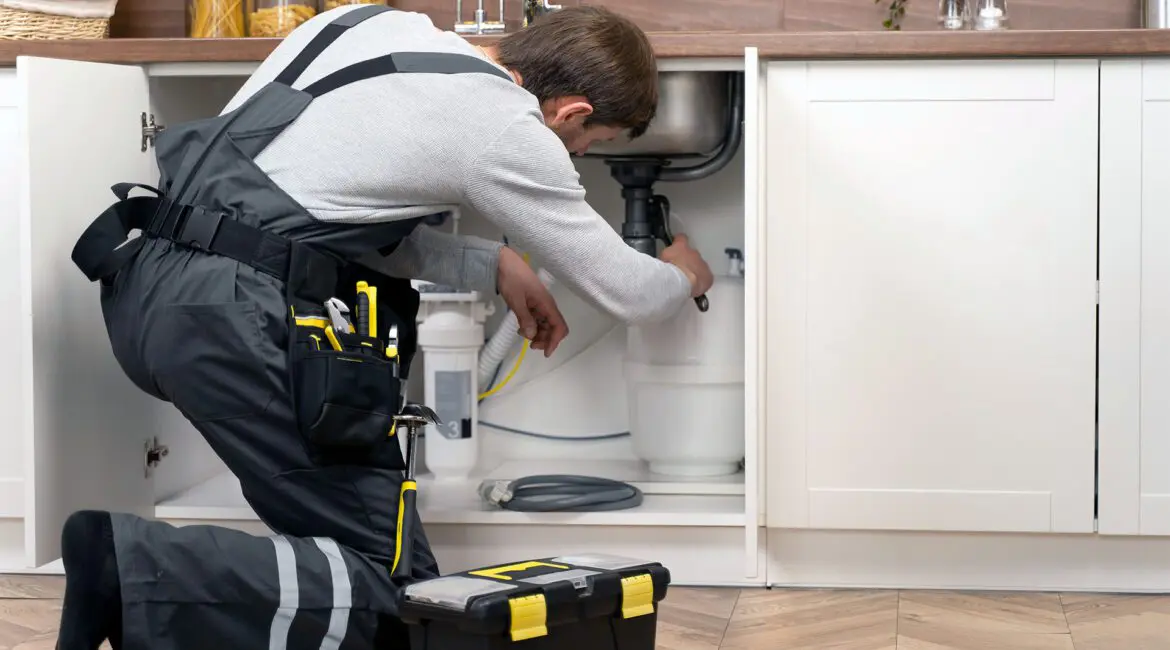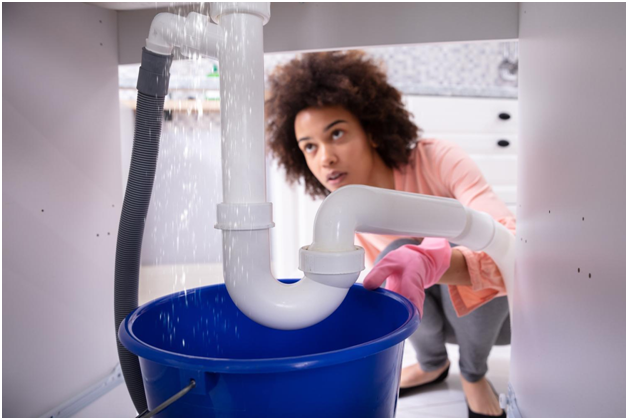How to Manage Emergency Plumbing Problems Before Professional Help Arrives
How to Manage Emergency Plumbing Problems Before Professional Help Arrives
Blog Article
We've stumbled upon this post pertaining to Expert Tips for Managing a Plumbing Emergency Until Help Arrives down the page on the net and think it made sense to write about it with you over here.

Pipes emergency situations can strike at any moment, causing stress and possible damages to your home. Whether it's a burst pipeline, a stopped up drain, or a dripping faucet, knowing just how to handle the scenario up until a professional plumber gets here can conserve you from additional problems. This write-up supplies important emergency situation pipes tips to aid you reduce damage and reclaim control during a pipes dilemma.
Turn Off the Water
The primary step in any pipes emergency is to shut down the supply of water. For local issues, such as a dripping faucet or bathroom, turn off the shutoff near the component. In the case of a significant leakage or burst pipeline, locate your home's major water shut-off valve and transform it off immediately. Understanding the area of these valves ahead of time can save useful time during an emergency.
Shut down Your Water Heater
In certain emergency situations, such as a ruptured pipe, it's smart to shut off your water heater. This protects against overheating or damage to the device when water stops flowing. Shut off the power supply to the hot water heater (electric or gas) and allow it cool to avoid prospective dangers.
Temporarily Stop a Ruptured Pipeline
A burst pipe can cause substantial water damage in minutes. To minimize the issue:
Call an expert plumbing right away to attend to the problem permanently.
Have an Emergency Situation Pipes Set
Prepare a fundamental plumbing emergency kit to take care of small concerns successfully. Your kit must include:
Having these tools available can make a significant distinction in your capacity to handle emergencies.
Unclog Drains Securely.
A stopped up drain can be a frustrating and unpleasant problem. Here's how to tackle it:.
If these methods do not function, avoid making use of excessive pressure, as it may get worse the obstruction.
Take Care Of Overflowing Toilets.
An overflowing commode can trigger immediate mayhem. Here's what you must do:.
Address Little Leakages with Temporary Fixes.
Little leakages can rapidly end up being significant problems if left untreated. Use these short-term solutions till specialist help shows up:.
While these solutions aren't irreversible, they can help reduce water loss and damage.
Manage Frozen Piping Meticulously.
In colder environments, frozen pipelines are a common emergency. If you think a frozen pipe:.
Know When to Call a Professional.
While quick fixes can aid momentarily, specific plumbing problems need prompt specialist attention. Call a plumbing professional if:.
Promptly getting in touch with a specialist ensures the issue is fixed properly and protects against more complications.
Stop Additional Damage.
Taking fast activity to lessen damage can save you money and time in the future. Right here's exactly how:.
Conclusion.
Pipes emergencies can be overwhelming, yet with the appropriate knowledge and devices, you can handle the situation successfully until assistance arrives. By switching off the water supply, attending to small leakages, and using momentary fixes, you can lessen damage and keep your home safe. Keep in mind, these tips are momentary solutions; constantly speak with a qualified plumbing technician to handle the source of the issue. Prep work and quick reasoning are your ideal allies in any type of pipes emergency situation.
8 Helpful Tips for Managing Plumbing Emergencies at Home
If your plumbing system hasn’t failed once, wait for it because almost everyone has a story to tell. Sometimes, it could be simple emergencies such as a leaking pipe, a blocked cistern, or even a big burst pipe. In situations like this, you need to have some handy tips to save you some money and from possible damages.
Take care of minor issues early.
Sometimes, you could have avoided an emergency by taking proactive measures while it was still early. Some major plumbing emergencies can be a result of an ignored minor issue. We recommend that you have items like plumbing tapes and other related items. A plumbing tape can allow you to manage minor leaks before the plumber arrives.
Cut off the water supply.
This tip is essential in almost any type of leakage problem. For problems like minor leakages in the toilet or kitchen, turn off the supply that takes water to the affected pipes. If the leakage is a major pipe, you must shut off the supply valve to the entire building. This will help you avoid flooding your home and neighbors if you share a flat.
Know your plumbing system
Folks typically move into a new apartment without understanding the water supply around the building. This can prove disastrous if a water emergency arises and the plumber is far away. The previous tip will prove useless if you don’t practice this one. More importantly, know where your water shut-off valve is located – you’ll need that knowledge to prevent potential home floods.
Have some common handy tools
There are lots of plumbing emergencies that you can handle without hiring a plumber. That’s why you must keep some tools available always. Some tools that you can use to fix simple plumbing emergencies easily include plumbing tapes, screwdrivers, thread seal tapes, plungers, pliers, tape measures, and rubber gloves.
Insulate your pipes from cold
You’ll save yourself from many plumbing expenses if you protect your water pipes from the cold. This is because of the harmful effects that cold weather can have on your pipes. During winter, your pipes can burst from being overly expected to freezing temperatures. So, make sure insulators are there to keep the pipes working correctly.
Avoid practices that will clog your toilet.
Many people indulge in practices that can damage the plumbing system of the entire building. One of these is when they use their toilet to dispose-off garbage. They flush all kinds of things, such as paper towels, bandages, hairs, female sanitary products, etc., down the toilet. This will block your toilet in the long run, incurring unnecessary expenditures. Dump such waste in the trash instead.
Check your dials regularly.
Sometimes, there could be leakages in your home without noticing them in time. So, constantly monitor your water meter dial. If the dial is reading when there is nobody using water, this is an indicator that there is leaking. Check for leaks immediately. Call a plumber as soon as possible if you can’t find any.
https://www.constructionplacements.com/8-helpful-tips-for-managing-plumbing-emergencies-at-home/

Do you appreciate more info about Expert Tips for Emergency Plumbing Repairs? Try to leave feedback directly below. We would be glad to know your feelings about this posting. We are looking forward to see you back again later on. So long as you enjoyed our blog posting kindly don't forget to pass it around. Kudos for your time. Please come by our blog back soon.
Call Today Report this page